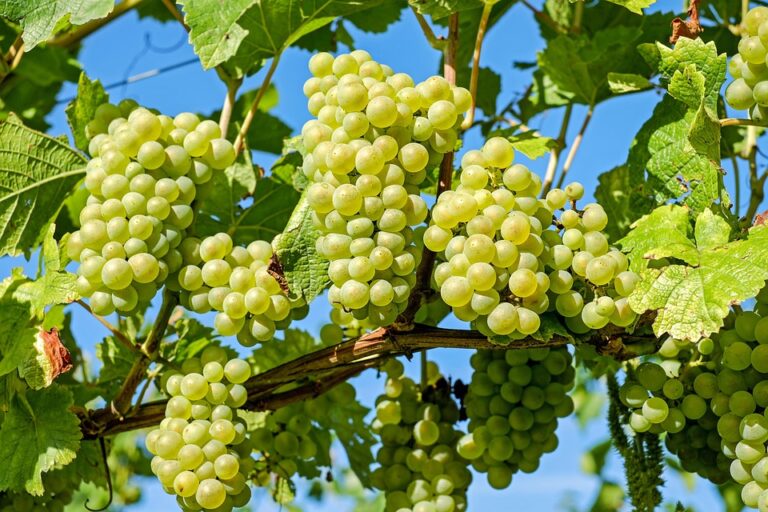Reviving the Soil: The Essential Benefits and Practices of Organic Farming
As society grapples with the escalating challenges of environmental change, food security, and public health, organic farming has emerged as a crucial player in redefining agriculture. By prioritizing natural processes and sustainability, organic farming not only revives soil health but also guarantees a more resilient future for generations to come.
What is Organic Farming?
Organic farming refers to a holistic farming approach that avoids synthetic fertilizers, pesticides, and genetically modified organisms (GMOs). This method emphasizes biodiversity and seeks to restore health and balance to the ecosystem. According to the Organic Trade Association, the U.S. organic market reached $62 billion in 2020, showcasing a continued and growing consumer demand for organic products.
The Essential Benefits of Organic Farming
1. Improved Soil Health
One of the primary benefits of organic farming lies in its ability to revitalize soil health. Conventional farming methods can deplete soil nutrients and lead to erosion. In contrast, organic practices—such as crop rotation, cover cropping, and composting—enhance soil fertility and biodiversity. Studies have shown that organic soils have higher levels of organic matter, which improves moisture retention and supports beneficial microbial life.
2. Reduced Environmental Impact
Organic farming practices reduce the adverse effects of traditional agriculture on the environment. According to a report by the Food and Agriculture Organization (FAO), organic farming can decrease greenhouse gas emissions by 20-50% compared to conventional methods. Organic farms often have lower water usage rates, minimized runoff, and a significantly reduced impact on local ecosystems.
3. Healthier Food Options
The move towards organic farming is often driven by the demand for healthier food choices. Organic crops typically have lower pesticide residues and higher nutritional value, making them a preferable option for health-conscious consumers. A study published in the British Journal of Nutrition found that organic produce tended to contain higher antioxidant levels compared to conventionally grown crops.
4. Economic Viability
As the organic market continues to flourish, farmers transitioning to organic practices can enjoy higher profitability. In many regions, organic products command premium prices, enabling farmers to benefit economically while promoting sustainable agricultural practices. The Organic Trade Association noted that organic fruits and vegetables accounted for 15% of total produce sales in 2020, indicating substantial market growth and a shift in consumer preferences.
Essential Practices in Organic Farming
1. Crop Rotation
Crop rotation is a foundational practice in organic farming. By rotating different types of crops, farmers can promote soil fertility, prevent pest buildup, and reduce weed pressures. For example, planting legumes in one cycle can enrich the soil with nitrogen, benefiting subsequent crops that require this essential nutrient.
2. Cover Cropping
Cover crops are plants grown primarily to benefit the soil rather than for harvest. These crops, like clover or rye, reduce erosion, improve soil structure, and contribute organic matter—even when left to decompose in the soil. This practice is analogous to a natural mulch, providing essential nutrients while suppressing weeds.
3. Composting
Composting involves recycling organic matter, such as kitchen scraps and plant waste, into nutrient-rich soil amendments. This practice not only reduces waste but also enhances soil health. Composting can increase microbial diversity and improve the soil’s ability to retain moisture and nutrients.
4. Integrated Pest Management (IPM)
Instead of relying on synthetic pesticides, organic farmers employ Integrated Pest Management (IPM) to control pests naturally. This approach combines biological control, habitat manipulation, and cultural practices to manage pest populations effectively and sustainably.
The Future of Organic Farming
As awareness of environmental and health issues continues to rise, the role of organic farming in sustainable agriculture will become more prominent. Advocates believe that expanding organic farming practices worldwide is essential for cutting down carbon emissions, enhancing food security, and promoting ecosystem resilience.
Conclusion
Reviving the soil through organic farming is not merely an agricultural practice; it is a critical component of a sustainable lifestyle. With the promise of healthier food, reduced environmental impact, and improved economic viability, organic farming stands as a beacon of hope. As consumers demand more organic options, farmers are encouraged to adopt these practices, ensuring a greener future for our planet.
For further reading, you may find these articles interesting:
For credible external resources, consider visiting:
Disclaimer: Buzzo.live is not responsible for the content contained in this article, as it is not a professional website or consultant. We do not take liability for any information provided herein.


